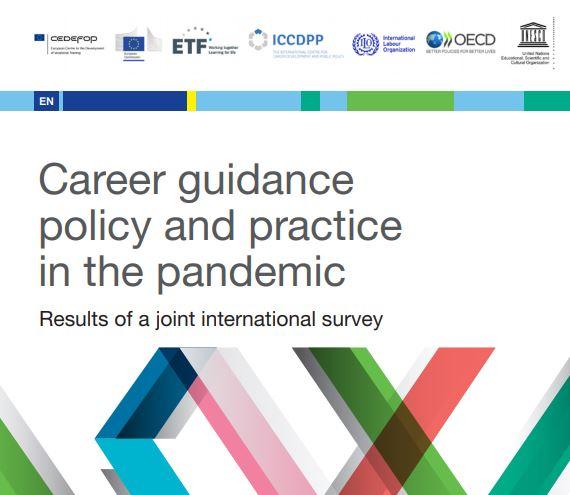
Career guidance: key feature coping with pandemic and recovery
Results of a joint international survey
The ETF has been a consistent advocate on the role of effective career guidance in the development of education, training and employment systems in the EU’s neighbouring countries.
With the advent of the Covid-19 pandemic and dealing with its impact and aftermath the need for career guidance is even greater to help individuals to reach their potential, economies to become more efficient and societies to become fairer. More than ever people require personalised, impartial, and timely information and support to make informed decisions about their lives. Career guidance assists with the implementation of lifelong approaches to learning and active approaches to labour market engagement and transition.
As a result of coordinated work by international organisations and a flash survey conducted from June to August 2020 insight has been acquired into the many elements of career guidance during this period. A recently published report outlines the responses to examine the policy, systems and practice changes that occurred during the first phase of government reactions to the pandemic, the extent to which the pandemic and its social consequences triggered a debate on career guidance reform, and the role for career guidance in pandemic recovery measures. It also considers the support role of international and donor bodies.
The survey and report are a joint initiative of several organisations: the European Centre for Development of Vocational Training (Cedefop), the European Commission, the European Training Foundation (ETF), the International Centre for Career Development and Public Policy (ICCDPP), the International Labour Organisation (ILO), the Organisation for Economic Co-operation and Development (OECD) and United Nations Educational, Scientific and Cultural Organization (UNESCO). The survey design and implementation was coordinated by Cedefop.
Survey findings
There were 963 valid respondents from 93 countries. The highest number of respondents were career guidance practitioners (47%), distributed across 53 countries. Respondents confirmed the potential of career guidance to contribute to the recovery in terms of efficient investment in education, skills development, labour market efficiency, and social inclusion. Importantly, they highlighted the role of career guidance in supporting and enabling distance and blended learning, which itself has been an institutional response to the pandemic. Debate triggered by the pandemic, where it occurred, has focused on systems adaptation: the supply or provision of blended forms of career guidance and the move towards remote forms of delivery.
Respondents highlighted the need for individualised solutions, given the uncertainty created by the pandemic: career counselling, coaching, mentoring, and psychosocial support. But problems of access exist, especially for persons with disabilities, migrants and refugees, and the pandemic has increased difficulties for these groups. A fair share of respondents consider that guidance can contribute to social inclusion and support, such as accessing social protection benefits, and accessing learning and work by women, migrants and refugees.
The report highlights the need for more cooperation between government ministries and agencies, service providers, employers and other stakeholders in rethinking and repositioning guidance in the national Covid-19 recovery strategies.
Future considerations presented in the report concern: career guidance reform, ensuring access and outreach, high-impact youth support, upskilling, reskilling and adaptation, and international and donor cooperation.
More information on ETF activities in career guidance can be found on the dedicated page on the OpenSpace virtual platform
Did you like this article? If you would like to be notified when new content like this is published, subscribe to receive our email alerts.